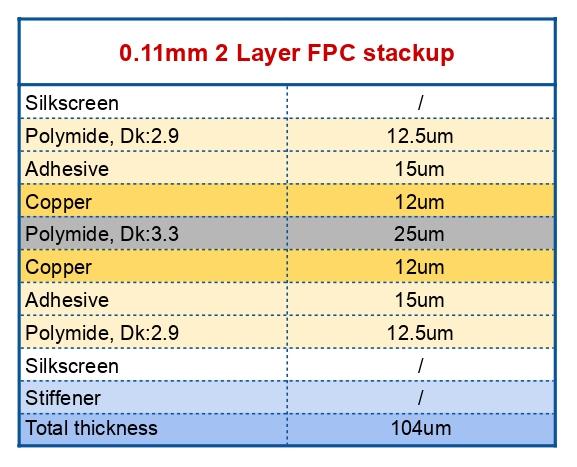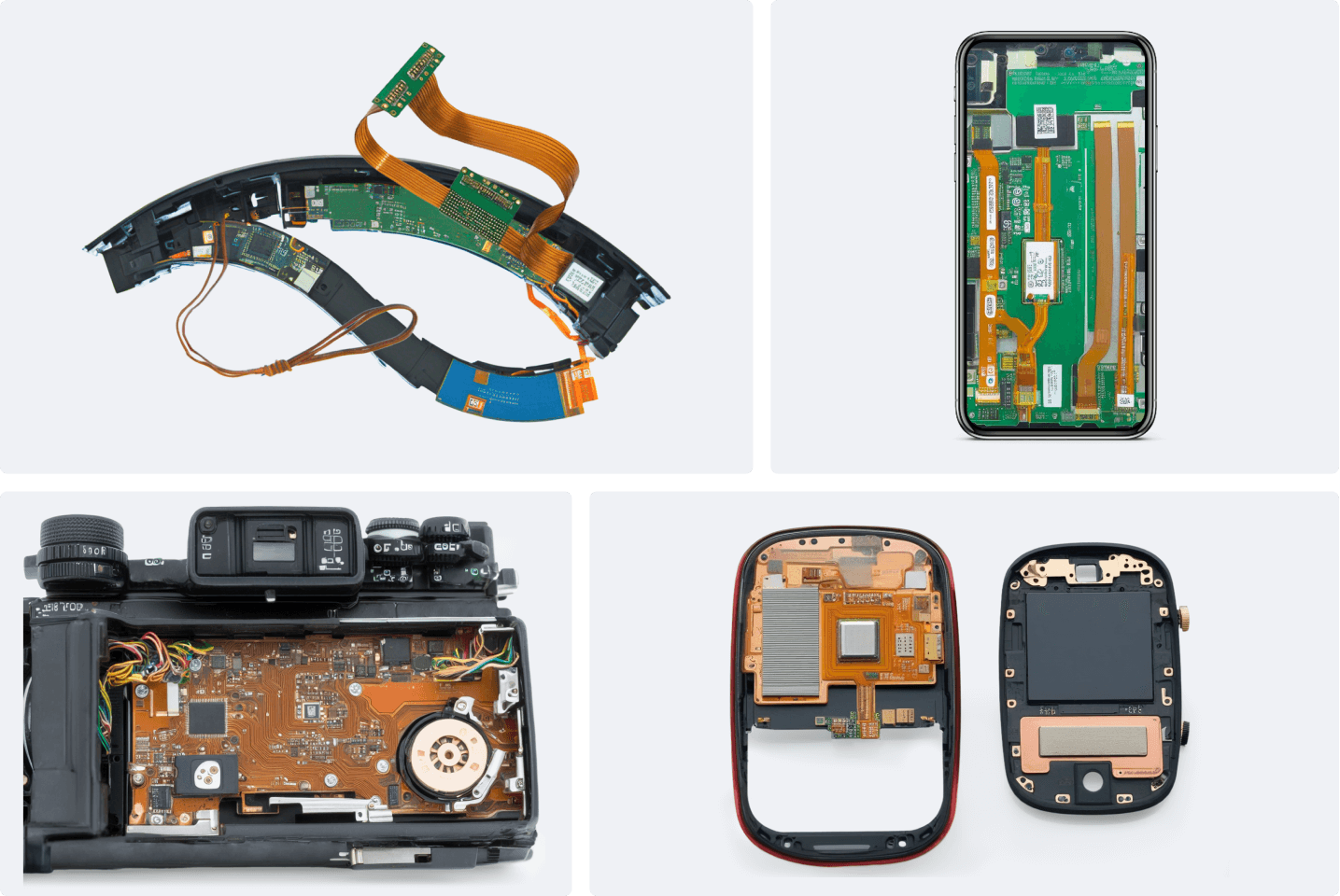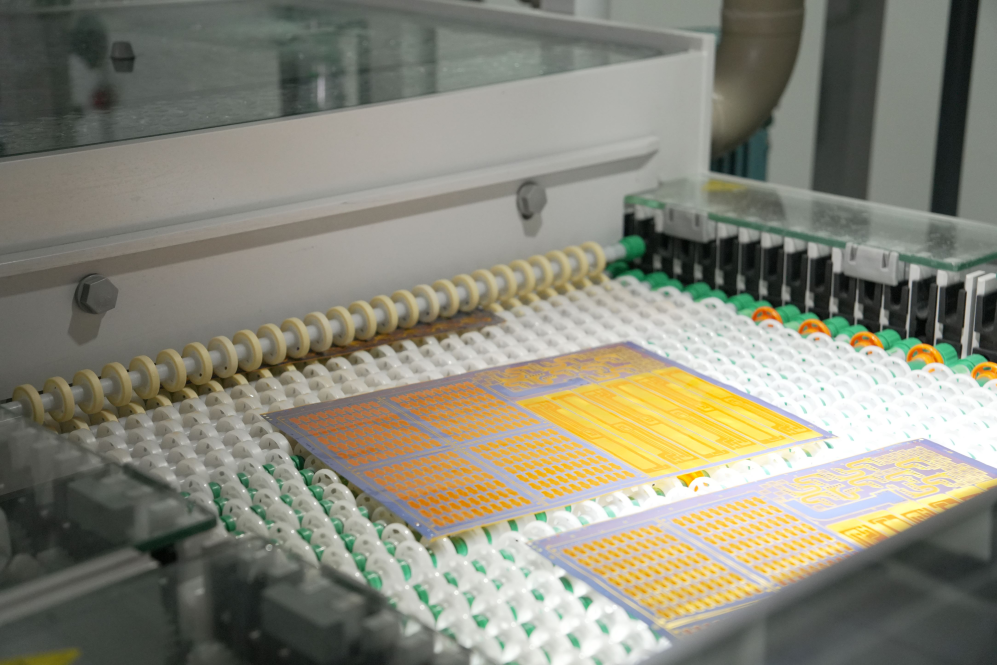Flexible PCB
JLCPCB offers high quality durable Flexible PCB suitable for complex and compact applications. With our cutting-edge technology we deliver high-quality flex PCBs that reduce space and weight, while increasing reliability. Prices start at just $2, and you can even grab a $10 coupon to try out our quality.
What is Flexible PCB?
A Flexible PCB, or flex printed circuit board, is a type of PCB designed to bend and flex to fit into compact spaces. Made from flexible materials like polyimide, Flex PCBs are used in applications where space is limited and flexibility is essential, such as in wearable devices, smartphones and medical equipment. They offer advantages in terms of reliability, weight reduction, and design versatility. JLCPCB utilizes cutting-edge production technology to deliver premium Flexible PCBs that meet the demands of complex, lightweight and compact applications. Our Flex PCBs offer superior performance, improved thermal management, and seamless integration possibilities. 

Standard 2-Layer Flexible PCB Stackup
Standard 0.11mm 2-layer Flex PCB features a carefully structured stackup for optimal performance in compact and flexible applications. The stackup includes two 12μm copper layers separated by a polyimide dielectric with a dielectric constant (Dk) of 3.3 and 2.9, offering excellent electrical insulation and flexibility. Each copper layer is bonded with 15μm adhesive, ensuring strong layer integrity. The total thickness of 104μm provides a balance between flexibility and durability, making it suitable for intricate designs and dynamic environments. 

Common Applications of Flexible PCBs
Wearable Technology:Flexible PCBs are ideal for wearable devices such as fitness trackers, smartwatches, and medical monitors. Their flexibility allows them to conform to the shape of the human body, providing comfort and durability in dynamic environments.
Consumer Electronics:Flexible PCBs are widely used in smartphones, tablets, laptops, and cameras. They help reduce the size and weight of these devices while allowing for more compact and complex internal designs.
Automotive Systems:In the automotive industry, Flexible PCBs are used in dashboards, control systems, sensors, and LED lighting. Their ability to withstand vibrations, extreme temperatures, and harsh conditions makes them suitable for automotive applications.
Medical Devices:Flexible PCBs enable smaller, more comfortable, and biocompatible designs in implantable devices, diagnostic equipment, and medical sensors, improving patient care and outcomes.

JLCPCB FPC Capabilities
Process Innovation:We support complex shapes and panelization services, provide professional FPC layout software and offer expert design guidance services.
Stiffener Process:We support PI stiffener, steel stiffener, FR4 stiffener, adhesive backing and electromagnetic film processes. 0.4-1.6mm thick FR4 upgraded to hot-press process, ensuring SMT high-temperature resistance without detachment.
Precision Circuits :Minimum line width and spacing support 2/2mil. We use self-developed CAM software. With the help of high-precision lithography machine technology at the circuit board level, we easily handle 0.05mm wide circuits.

The Benefits of JLCPCB Flexible PCB
 Superior Performance & Precision
Superior Performance & Precision 10.8μm advanced lithography ensures perfect hole alignment, eliminating misalignment issues.
 Extreme Durability
Extreme Durability Withstands up to 280°C without breaking. Uses 100% adhesive-free base material for enhanced reliability.
 Unlimited Design Flexibility
Unlimited Design Flexibility Intricate cuts achievable with P-second UV laser shaping, offering vast design possibilities and cost-effectiveness in manufacturing.
FAQs
What materials are used in Flex PCBs?
What is a typical thickness of Flex PCB?
How do Flex PCBs differ from rigid PCBs?
Unlike rigid PCBs, Flex PCBs can bend and fold, allowing them to fit into tight spaces and conform to complex shapes, making them suitable for dynamic and compact designs.
Can Flex PCBs handle high temperatures?
What are the design considerations for Flex PCBs?
Can Flex PCBs be customized for specific applications?